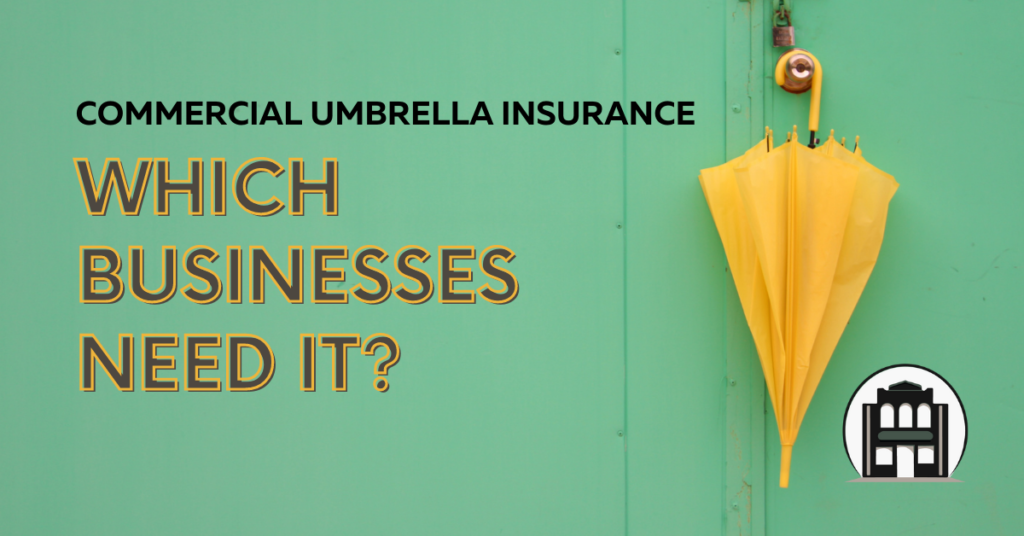
Many business insurance concerns can be overwhelming, and even the best coverage has limits. That’s where a commercial umbrella policy comes in. An umbrella policy is designed to give businesses extra coverage for those costs that exceed policy limits. It can be a saving grace for businesses hit with a claim that results in legal costs, medical bills, damage to others’ property, and settlements — to name a few examples.
How does commercial umbrella insurance work?
Basically, umbrella coverage extends the coverage that a business already has, providing insurance coverage beyond the limits of general policies.
Businesses typically have general liability coverage and other coverages that relate to the specifics of their businesses, such as commercial auto, and workers’ compensation. Depending on the business’s risk level, additional coverage may be needed to provide extra payouts for substantial liability claims that can strike at unexpected times.
Examples of what an umbrella policy can cover:
- Customer injury (e.g., slip and fall injuries)
- Employee injury lawsuits
- Libel
- Product liability
- Property damage lawsuits
- Reputational damage
- Vehicular accidents
What can’t be covered by a commercial umbrella policy?
There’s a lot that commercial umbrella insurance can cover, but underlying coverages must be in place in order for an umbrella policy to be effective. Oftentimes the umbrella policy insurer will require a certain amount of coverage for the underlying policies. For example, commercial umbrella may not provide any coverage for commercial auto claims if a company does not have an underlying commercial auto insurance in place.
Additionally, commercial umbrella doesn’t extend all commercial insurance policies. Typically, this type of insurance doesn’t cover claims for insurances such as property or errors and omissions (E&O).
Other examples of liabilities that commercial umbrella typically doesn’t cover are discrimination and malpractice lawsuits and business property damage.
Who needs umbrella insurance?
Commercial umbrella insurance isn’t necessarily for everyone, but with how quickly lawsuit costs can escalate and result in catastrophic losses for many small businesses, it is increasingly becoming a necessary coverage.
Businesses that would most benefit from commercial umbrella include those with increased risks of exceeding their typical business insurance coverage limits. For example, a company that has commercial property that is open to the public has increased liability, because working directly with people in an area with high foot traffic exposes the business to lawsuits related to third-person injury (e.g., slips and falls).
Businesses that own and/or operate many vehicles are also great candidates for commercial umbrella, as well as those that work in hazardous conditions, such as construction. Oftentimes, businesses like construction companies may be required to have a certain amount of coverage as dictated by a contract. Umbrella coverage can often bridge that gap. For example, say a general liability policy has a limit of $2 million and a contract requires a business to have coverage up to $5 million. Umbrella insurance can step in and cover the additional $3 million required by the contract.
How much coverage a company should get depends on the industry and risk level. Properly assessing a company’s risk is crucial. First, it’s important to ensure the company is covered for the often-catastrophic costs of legal counsel, lawsuits, medical care, or other damages. Second, properly assessing risk will protect a company from paying too much for coverage that isn’t right for it.
Is umbrella insurance right for my business?
Contact us – your trusted choice agent. We’re trained professionals who can help you determine if umbrella insurance would be a smart purchase for your business. After assessing your needs, we can recommend a selection of coverages that best suit your company’s unique needs.
DISCUSS YOUR BUSINESS INSURANCE NEEDS WITH A LOCAL AGENT TODAY.


